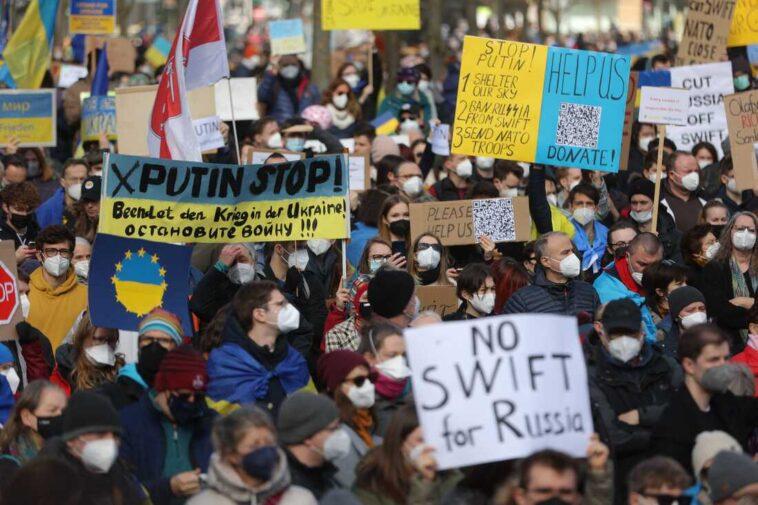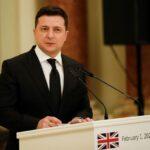The most emblematic brands of the USA and the culture of capitalism, such as Coca Cola, McDonald’s or Starbucks, announced this Tuesday, almost in unison, that they are suspending their operations in Russia, thus joining the dozens of companies that in days previous ones took a similar step.
Today’s announcements are especially significant, both because of the volume of business and because of the symbolic nature of brands that represent the ‘American way of life’ and whose arrival in Russia, in the particular case of McDonald’s in 1990, it became at the time an event of modernity in post-Soviet Russia.
The suspension of the business of these global franchises deals an additional blow to Russia on the same day that US President Joe Biden announced a ban on the import of oil, natural gas and coal from Russia as punishment for the invasion of Ukraine.
The first to announce a “pause in all business” in Russia was McDonald’s, a company that has 850 premises throughout the Russian territory and employs 62,000 people. The well-known hamburger franchise had been under pressure for several days and the call to join the retaliation against Russia multiplied on the networks.
McDonald’s finally announced that it is temporarily closing all its stores because it cannot “ignore the unnecessary suffering caused to Ukraine”, although it specified that all employees will continue to receive their salaries.
The fast-food company recalls that it has been operating in the country for 32 years and that its restaurants can boast of serving “millions of Russians daily”.
Hours later, the Starbucks chain was added, which, although it has more modest figures (170 stores, according to Statista, and 2,000 employees), is also another powerful symbol of capitalist globalization with its coffee shops, which are usually always located in the busiest parts of the main cities.
The company, which reiterated its condemnation “of the horrible Russian attacks in Ukraine”, announced that it is suspending all its activities on Russian territory and advanced that, as the situation evolves, it will continue to take measures that are in line with its “values”.
Likewise, Coca Cola, until now reluctant to give up the Russian market, followed in his footsteps and, in a brief statement, announced that it is suspending operations and will continue to evaluate the situation and the course of events.
“Our hearts go out to the people who are suffering the horrific effects of these tragic events in Ukraine,” said the company based in Atlanta (Georgia, USA).
Its great competitor Pepsi Cola could not stay on the sidelines and shortly after announced that it is suspending the sale of all its soft drinks (Pepsi and Seven Up, mainly) and products in Russia. Likewise, it does not close its plants, because among its businesses there is a dairy products factory that employs 20,000 people and another 40,000 ranchers in the supply chain.
“We have been operating in Russia for more than 60 years and have a place in many Russian homes. Pepsi-Cola entered the market at the height of the Cold War and helped create common ground between the United States and the Soviet Union,” wrote its CEO, Ramon Laguarta, to emphasize what his decision means, although he acknowledged that the situation could not continue unchanged “given the horrible events” in Ukraine.
Amazon shuts down the cloud
Likewise, Amazon, the symbol of next-generation capitalism, announced that it has blocked new access to its cloud services in Russia and Belarus, the company said in a statement on Tuesday.
“Given the current circumstances, the uncertainty and the lack of credit available in Russia right now, we will not be accepting new Russian customers at this time,” detailed Drew Herdener, spokesman for the company.
From the Amazon web service (AWS, in English) it was specified that they do not have offices or data centres in Russia and that their main clients are multinational companies with local teams based in that country.
In recent days, other major global brands applied various measures against Russia: the big technology companies —Google, Meta (Facebook), Apple and YouTube— interrupted their services in Russian territory, as did the international payment companies Visa and Mastercard, the multinational furniture company Ikea or the food company Nestlé.
These last two names would show that the boycott movement is not exclusively American and that it is joined by renowned European companies, including firms generally reluctant to get involved in political pronouncements, such as the luxury brands LVMH, Hermès or Chanel, which have also closed its stores in Russia.




GIPHY App Key not set. Please check settings